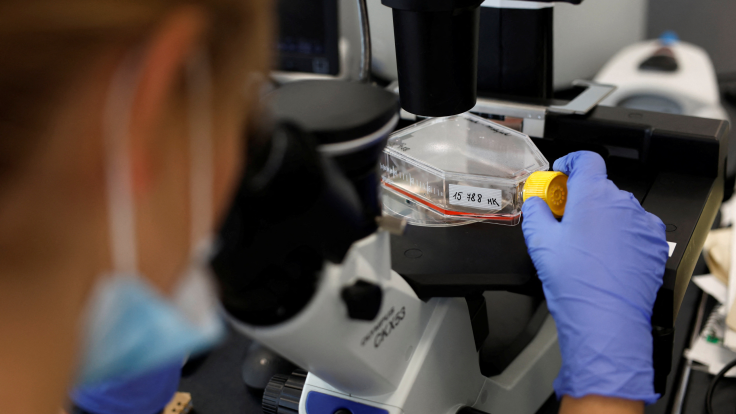Lab-Grown Meat for Pets Set To Hit UK Supermarkets This Year
The lab-grown meat will be made from the extraction of cells in chicken eggs

Lab-grown meat is set to be unveiled in the UK for the first time this year by Owen Ensor and his London-based startup, Meatly. The product is not being created for humans but for the pet food industry instead - specifically for cats.
Whilst the Department of Food has yet to officially approve it, it is expected to occur in the next three months. The first samples of the lab-manufactured chicken for cats were produced last week.
The reasoning behind Ensor's new product is that it will provide cat owners with an eco-friendly feeding option amidst growing concerns over industrial farming and the problematic physical and mental state some animals endure. Meatly's invention is the company's first step to creating a sustainable and ethical solution for pet feeding.
There is a clear market for the startup's meat alternative, as pets in Britain make up just over 20 per cent of the nation's meat consumption. Meatly has discovered that this is more than the meat children eat.
Also, the pet food landscape is growing at a consistent rate of seven per cent annually, and the industry is set to have a worth of £120 billion in two years.
The lab-grown meat will be packaged in tins and cost approximately £1 at supermarkets nationwide. It will contain 150g of the product, accounting for one cat serving.
Interested customers will first be able to purchase Meatly's new pet food at Pets at Home stores. This is because the retailer initially expressed early interest in the product after becoming an investor.
Ensor hopes that customers will be able to purchase the product soon, saying: "I very much hope that we will have this on sale this year."
Meatly's newest invention is created by extracting cells from chicken eggs and then using vats to duplicate that. This is close to the process that is followed when producing yoghurt.
People have become wary of the environmental drawbacks of feeding meat to their pets, which include increased carbon footprint activity and more greenhouse gases emitted into the earth's atmosphere. This will likely lead to Meatly's lab-meat becoming a popular product when it hits the shelves in the UK soon.
However, allowing pets to consume a meat-free diet and vegan diet could have a detrimental effect on their vitamin intake. In 2021, the Pet Food Manufacturers Association's Nicole Paley stressed: "We advise that vegan diets with no animal products are carefully checked by a vet or animal nutritionist."
Also against giving pets meat-free food is BBC's Crufts expert, Dr Scott Miller, who believes doing so is an unnecessary choice from the owner and that dogs should not consume vegan food as it can be "extremely dangerous."
Dr Miller mentions that humans and pets should not be considered in the same light regarding diets. He explained: "Dogs and cats have sharper teeth for catching meat. As much as it makes sense for you to be a vegan, when it comes to our pets, it's going to prove problematic."
Elsewhere, the clamour has begun for humans to consume lab-grown meat, as researchers at the University of California have been dissecting genes from koji mould to create food that people can eat to help save the environment.
© Copyright IBTimes 2024. All rights reserved.






